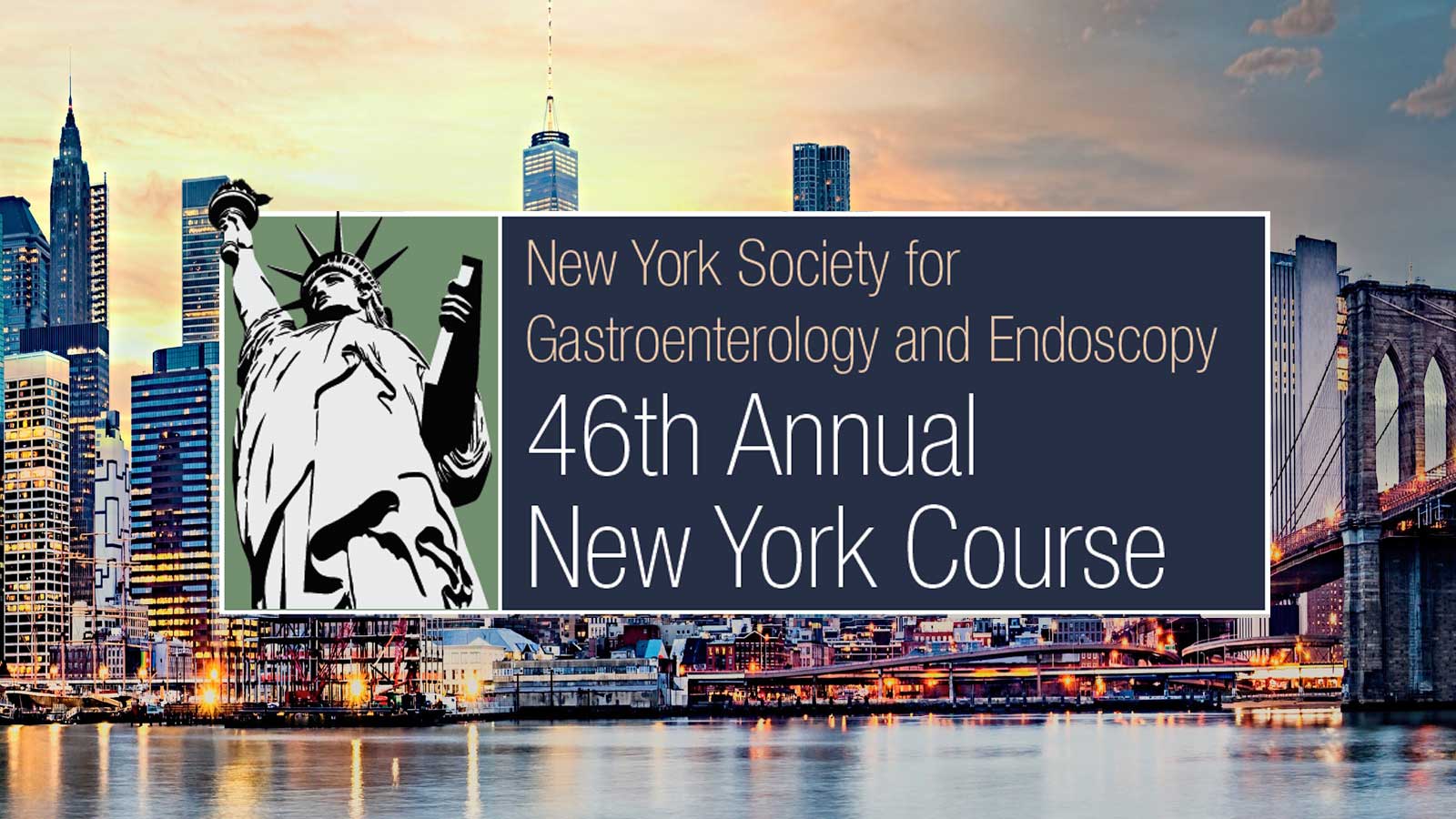

New York Society for Gastrointestinal Endoscopy 46th Annual New York Course 2022 (Videos)
$40.00
Format: 48 MP4 files
Category: *HOT books Gastroenterology Videos/Audios
published date: 15 Jul 23


$40.00
Format: 48 MP4 files
Category: *HOT books Gastroenterology Videos/Audios
published date: 15 Jul 23
Under the direction of expert faculty, this course is designed to improve endoscopic practice and change the learner’s approach to a wide range of disorders of the GI tract. The course content will provide current evidence and algorithms to support an efficient but effective evaluation of GI disorders, followed by prompt initiation of appropriate therapy that is directed toward improving patient care and outcomes.
The knowledge base for gastrointestinal endoscopy continues to expand, accompanied and fueled by rapid growth in technological innovations. Advances in therapeutic endoscopy are challenging or replacing techniques that before were purely diagnostic. While maintaining standards of quality and safety, gastroenterologists must understand and effectively apply current and emerging diagnostic and treatment options in order to elevate practice levels and enhance patient outcomes.
This course will help participants improve their ability to accurately diagnose and effectively treat gastrointestinal diseases and disorders, enhance quality and safety in practice settings, recognize trends and technological advances in interventional endoscopic and surgical procedures, and foster an evidence-based approach to endoscopic decisionmaking for commonly encountered and controversial problems in gastroenterology.
Learning Objectives:
• Identify appropriate methods to detect and treat common disorders of the small bowel, colon and pancreas, as well as endobariatric therapy for obesity, and review the effectiveness of these approaches
• Discuss the spectrum of commonly seen disorders of the esophagus and stomach, such as gastroesophageal reflux disease, Barrett’s esophagus, motility disorders and gastric intestinal metaplasia, and outline related treatment options and their effectiveness
• Discuss the management of metabolic associated fatty liver disease and evaluate the efficacy and safety of current treatments
• Evaluate advances in the methods of assessing disease status in patients with inflammatory bowel disease and discuss the application of these techniques to patient treatment
• Examine the diagnostic and therapeutic capabilities as well as complications of current and emerging advanced endoscopic techniques to diagnose and treat disorders of the hepatobiliary tract, pancreas, and luminal gastrointestinal tract and to detect and manage suspected small bowel bleeding
Topics:
ASGE President’s Lecture Ten Tips for Ensuring High Quality in the Performance of ERCP
Course Directors Closing Remarks
Jerome D. Waye, MD Lecture Use of the Stethoscope in Diagnosing GI Disease
Lawrence J. Brandt, MD Lecture Innovations in Therapeutic Endoscopy
Live Endoscopy Case Presentations Session 1
Live Endoscopy Case Presentations Session 2
Live Endoscopy Case Presentations Session 3
Live Endoscopy Case Presentations Session 4
Live Endoscopy Case Presentations Session 5
Lunch Program Eosinophilic Esophagitis Clinical Implications of Uncontrolled Disease Progression
Lunch Program ESD Can It Be Easier
NYSGE President’s Lecture The Sagittal View A Gastroenterologist’s Perspective
NYSGE-2022-AnnualCourse-PreviewBrochure.pdf
Peter D. Stevens, MD Endoscopic Video Forum A Tough to Swallow Procedure
Peter D. Stevens, MD Endoscopic Video Forum Endoscopic Drainage of a Large Abdominal Abscess in the Setting of a Ventriculo-Peritoneal Shunt
Peter D. Stevens, MD Endoscopic Video Forum Two Cases of 10 cm Circumferential Esophageal ESD
Session 1 Confronting Chronic Constipation
Session 1 Incorporating Upper GI Motility Testing into Your Practice
Session 1 Managing the Challenges of Gastroparesis
Session 1 Panel Discussion and Q & A
Session 2 Gastric Cancer Spectrum of Care Screening and Management of Intestinal Metaplasia
Session 2 Implementing New Guidelines for Barrett’s Esophagus
Session 2 Panel Discussion and Q & A
Session 2 Practical Guidance for Neuroendocrine Tumors
Session 3 Colonic ESD When and Why
Session 3 High Quality Polypectomy
Session 3 Panel Discussion and Q & A
Session 3 Sessile Serrated Polyps are Different from Adenomas
Session 4 Avoiding and Fixing Perforations
Session 4 Panel Discussion and Q & A
Session 4 Upper GI Bleeding Optimizing Outcomes
Session 5 Advanced Endoscopy for the IBDologist
Session 5 Management of Serious and Opportunistic Infections in IBD Patients on Immunosuppression
Session 5 Panel Discussion and Q & A
Session 5 Personalized IBD Therapy
Session 6 Panel Discussion and Q & A
Session 6 Prevention of Post ERCP Pancreatitis Who, When & How
Session 6 Screening for Pancreatic Cancer Who, When & How
Session 6 Tackling the Difficult Biliary Stone Who, When & How
Session 7 Glue, Coils & Foam Endoscopic Treatment of Gastric Varices
Session 7 Panel Discussion and Q & A
Session 7 Portal Hypertension Simplified EV and PHG
Session 7 Update on MAFLD (Not a Typo) and NASH
Session 8 Billing, Coding, and Documentation Getting the Credit You Deserve
Session 8 Panel Discussion and Q&A
Session 8 Patient Communication Not Just the Same Old Talk
Sidney J. Winawer, MD Lecture Building for Our Future – Diversity, Equity and Inclusion in GI
Welcome